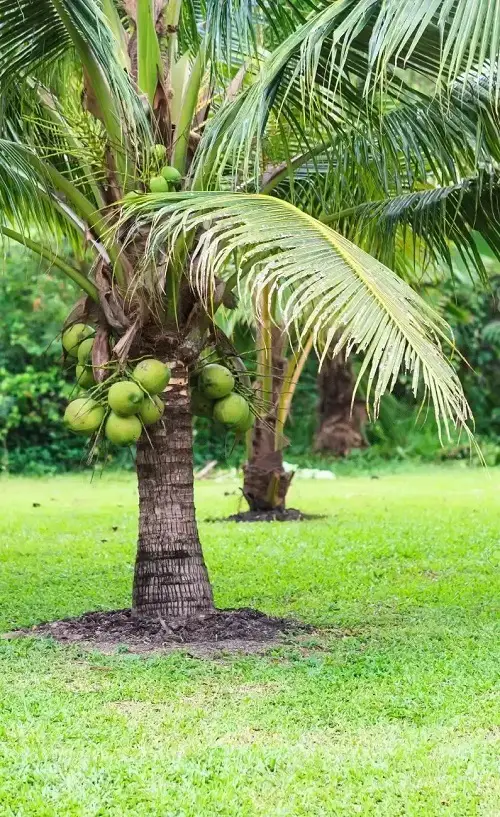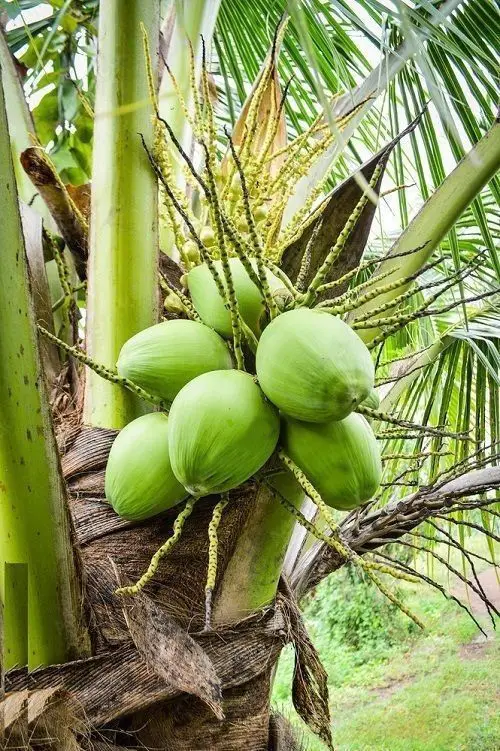Do Coconuts Grow On Palm Trees – If you have this question and are not sure about the answer, then this article is for you!

Do Coconuts Grow On Palm Trees? Well, the answer to this question cannot be direct as it comes with a few twists and turns. Keep on reading to find out!
Here’s an exclusive list of the Most Popular Types of Palm Plants
What is a Coconut?
Coconut fruit is a highly versatile food that is popular in many different ways. The outer layer of the coconut is a tough, fibrous husk that protects the inner layers of the fruit. Inside the husk is a hard, brown shell that encloses the edible flesh and water, which is also popular as a refreshing drink or as a base for many different types of dishes.
Coconut trees are an important crop in many parts of the world, providing food, fiber, and other products to millions of people. The trees are also an essential part of the environment, providing shade and shelter to many different types of animals and insects. The leaves of the coconut tree are famous for making thatch for roofs and other structures, while the wood is popular for construction and fuel.
In some parts of the world, the coconut acts as a symbol of fertility, and people use it in rituals and ceremonies.
Are Coconut Trees Different From Palm Trees?

Before we answer –Do Coconuts Grow On Palm Trees, it is important to know about these two in detail.
Coconuts:
Coconuts are a type of fruit that comes from the coconut palm tree (Cocos nucifera). The coconut palm tree is a tropical plant native to Southeast Asia and is now common in many parts of the world. These trees are tall and slender, with a single trunk and a crown of large, feathery leaves at the top.
Coconuts grow in clusters at the top of the tree and are surrounded by a tough, fibrous husk.
Palm Trees:
Palm trees are a diverse group of plants that belong to the Arecaceae family. There are over 2,500 different species of palm trees, each with its own unique characteristics and uses.
Some palm trees, such as the date palm (Phoenix dactylifera) and the oil palm (Elaeis guineensis), produce edible fruit that is used in cooking or for oil production.
Other palm trees, such as the fan palm (Washingtonia robusta) and the sago palm (Cycas revoluta), do not produce edible fruit but are prized for their ornamental value and can be grown as indoor or outdoor plants.
Do Coconuts Grow On Palm Trees?
So, do coconuts grow on palm trees? Yes, coconuts grow on palm trees, specifically on the coconut palm tree (Cocos nucifera). However, while all coconuts come from palm trees, not all palm trees produce coconuts.
The coconut palm tree is a specific species of palm that produces the coconut fruit, while other types of palms produce different types of fruit or no fruit at all.


